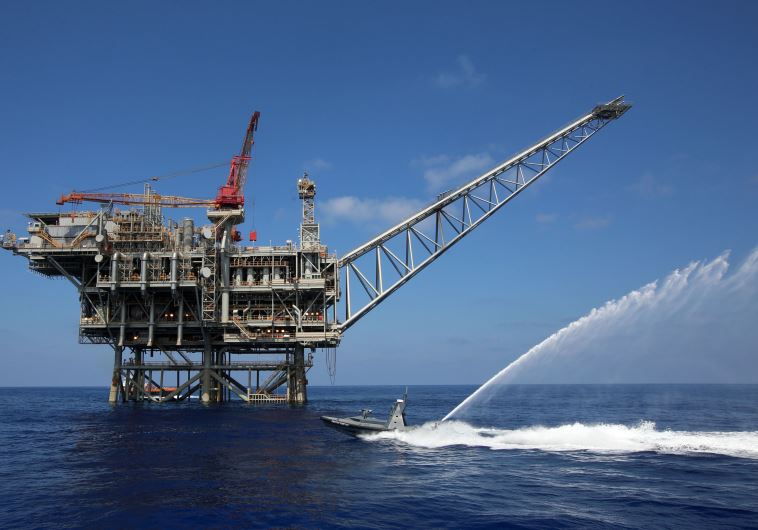Netanyahu weighs bringing gas plan back to Knesset
Noble "prepared to take actions necessary to protect the values of its assets" if outline does not get approval soon.
 Israel Navy missile ship patrols near Tamar gas field(photo credit: MARC ISRAEL SELLEM/THE JERUSALEM POST)Updated:
Israel Navy missile ship patrols near Tamar gas field(photo credit: MARC ISRAEL SELLEM/THE JERUSALEM POST)Updated: